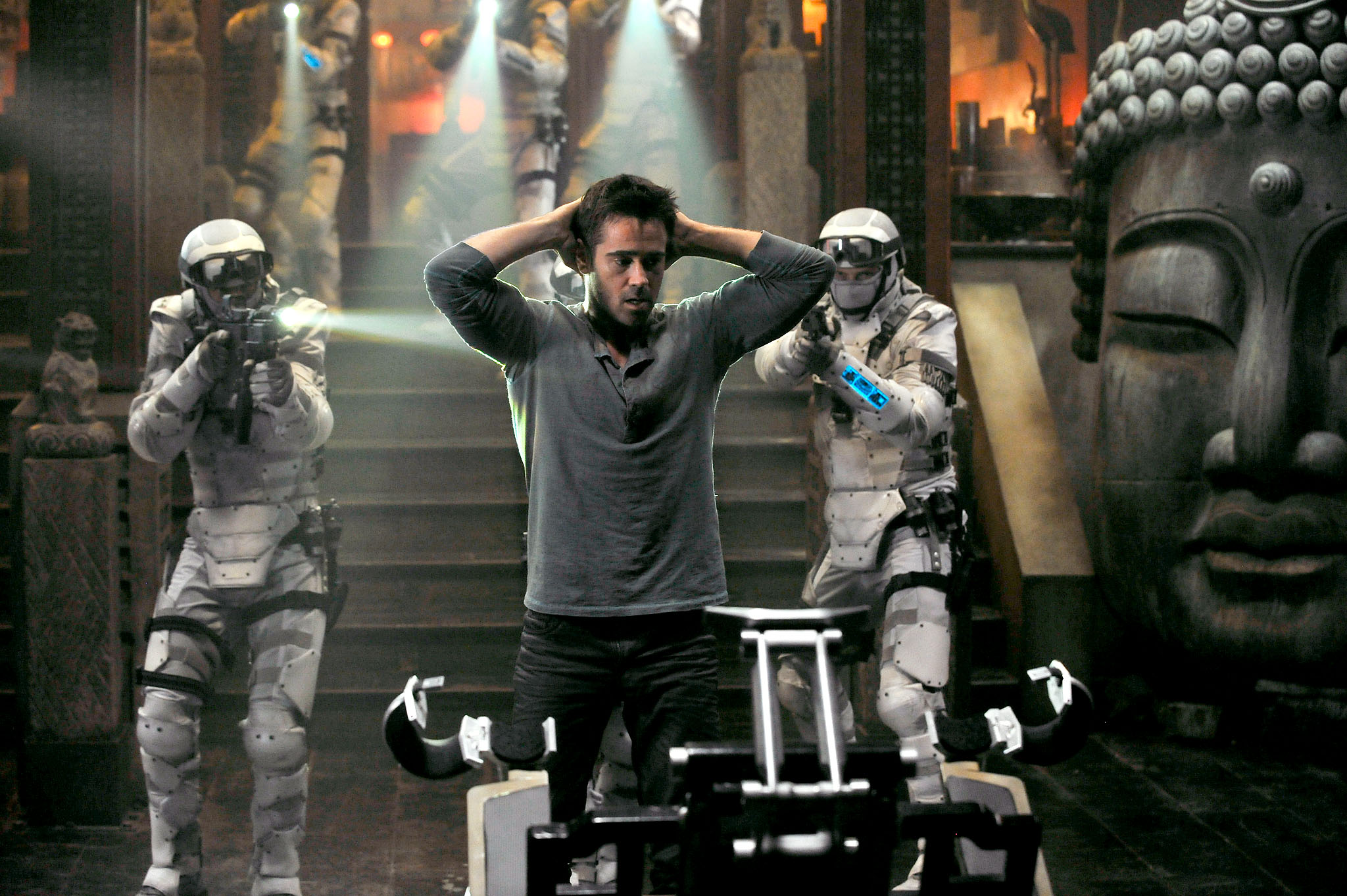Early Edition Contributing Writer
Since its release in 1990, Total Recall has been recognized as one of the most well-known science fiction movies of all time. The film has all the telltale signs of a quality early-’90s action flick: Arnold Schwarzenegger, aliens, explosions, and busty babes who pack heat. But when the new Total Recall, starring Colin Farrell, debuted this past summer, there was only a vague sense of something totally new.
According to Schwarzenegger’s Total Recall, the protagonist, a hard labor worker played by Dennis Quaid, lives in the future of a cliché post-apocalyptic wasteland, so much so that people are forced to move to Mars.
With all the toxic waste and stresses of hard labor, not to mention lack of oxygen, many of the forced refugees to Mars are horrifically deformed and resemble aliens from a comic book made out of molding clay and plastic prostheses.
Much like an iPod can be updated today, people of this time can be plugged into a machine and given memories they never had and feel things they never felt.
To be fair, a movie like this was a pure breakthrough within the science fiction film community and deserves great credit, though while watching I sometimes had to ask, “What just happened?”
I often felt lines were said backwards and lacked sense, especially during main scenes such as when Quaid was prepared to be given his memories as a secret agent on the Colony on Mars.
In this scene Quaid goes into an epileptic rage and reveals that he is a secret agent and the people in the room with him have given away his cover, and yet throughout the rest of the movie he is trying to discover who and what he is.
This major turning point in the plot makes the rest of the movie seem rather cartoony and somewhat predictable. From this point forward, Mr. Schwarzenegger and his counterpart, Sharon Stone, run from a political warlord as they try to save the workers of Mars. Even with the predictable ending, I can vividly remember watching this original Total Recall for the first time, and I still enjoy watching it from time to time.
The new Total Recall is a bit different, but not by much. Starring Colin Farrell and his attractive counterpart Jessica Biel, this adaption is based off the original movie, and not the (original) Philip K. Dick short story.
To me, this should have been enough to advise against a trip to the movies.
As a fan of Dick’s “We Can Remember It for You Wholesale,” I wondered if the new movie could live up to the expectations previously set by the original.
Unfortunately, my wonderings were left disappointed.
I was excited to see what the new movie had to bring to the table with 22 years of cinematic, technologic, and acting advancements. Sadly, I was less than ecstatic by the end of the film.
The best part of the film was the graphics; the future 22 years ago is very two-dimensional—a flat and intangible version of something I want to visually feel. This new take brings all the modern-day, technological advancements to the table, and really brings multiple new dimensions to the original problems set before Quaid as a secret agent.
Being that this slightly new premise appears interesting and relevant, one may think they will catch a glimpse into the not-so-far economic and political future.
And yet, this is not explored… at all. Instead, director Len Wiseman (known for the Underworld series and Live Free or Die Hard) used the script written by Kurt Wimmer and Mark Bomback to do what any summer blockbuster should: explosions, explosions, explosions—and minimal plot sensibility.
Recall’s premise is not of Mars, instead the Colony is Australia and the rest of the normal people live in Great Britain. The world is still laid to waste via chemical warfare, making anywhere outside of these areas completely inhospitable. The warlord does not oppress through sparing oxygen, but instead uses a gravity elevator known as “The Fall” which moves people through the Earth’s core in a swift 17 minutes so they can work as hard and fast as possible.
The execution from point A to point B during the story is less entertaining, and overall makes exposition a chore. It’s certainly not a better take than the original, but if you don’t mind filling in the plot-holes, this film is very enjoyable and in my opinion deserves a humble C+.
Questions? Email Daniel at dglass1@fandm.edu.
